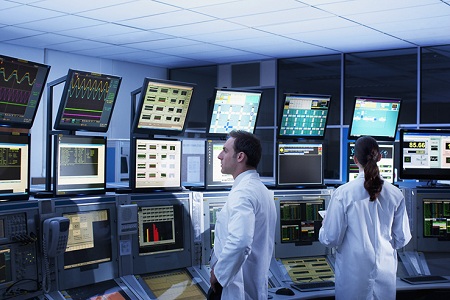Revenues for remote patient monitoring (RPM) solutions reached € 7.5 billion in 2016, according to a new study released by Berg Insight. This includes revenues from medical monitoring devices, mHealth connectivity solutions, care delivery platforms and mHealth care programs.
RPM revenues are expected to grow at a CAGR of 33.8 percent between 2016 and 2021, reaching € 32.4 billion at the end of the forecast period. Savings attributable to payers and care providers will by far exceed this amount as connected care solutions can allow better health outcomes to be achieved more cost efficiently. The new care models enabled by these technologies are often consistent with patients’ preferences of living more healthy, active and independent lives.

The healthcare industry is advancing towards an age where connected healthcare solutions will be part of standard care practices. “All health related devices that can be connected will be connected and patient data management therefore becomes increasingly important”, says Anders Frick, Senior Analyst at Berg Insight. He describes how the line between medical devices and health gadgets becomes blurred and traditional as well as startup companies try to position themselves as important players in the ecosystem for mHealth data. National PHR systems, device manufacturing companies, independent app producers and tech giants such as Google, Apple and Microsoft are some of the stakeholders. Another major trend is the consumerization of medical-grade mHealth devices and apps.
During 2016 hundreds of thousands of consumers have connected medical monitoring devices via their smartphones to cloud platforms. This marks a substantial shift that will open up new opportunities in the remote patient monitoring market in the coming years. “Payers and healthcare providers will have opportunities to take advantage of this trend, as consumers that already have started to use connected medical devices more easily can be onboarded onto new mHealth care programs”, concludes Mr Frick.
The new mHealth study from Berg Insight also investigates the connected AED market. An automated external defibrillator (AED) is a portable electronic device that automatically diagnoses and corrects life-threatening heart problems in a patient. Yearly shipments of AEDs are around 500,000 units globally. Several vendors recently started to offer AEDs featuring built-in connectivity whereas others are only in the planning stage to add connectivity. Berg Insight estimates that about 10 percent of all AEDs sold this year will be connected, a percentage that will increase to 50 percent by 2021.
About Berg Insight
Berg Insight is a dedicated M2M/IoT market research firm based in Sweden. We have been specialising in all major M2M/IoT verticals such as fleet management, car telematics, smart metering, smart homes, mHealth and industrial M2M since 2004. Our vision is to be the most valuable source of intelligence for our customers. Berg Insight offers numerous market reports, detailed market forecast databases and advisory services. We provide custom research tailored to your requirements including focussed research papers, business case analysis, go-to-market strategies and bespoke market forecasting. We have provided analytical services to 850 clients in 70 countries on six continents to date. Our customers range from many of the world’s largest mobile operators, IT companies and telecom vendors, to venture capitalists, technology start-ups and specialist consultants.
For additional information, please contact:
Johan Fagerberg, CEO
Phone: +46 31 711 30 91


















